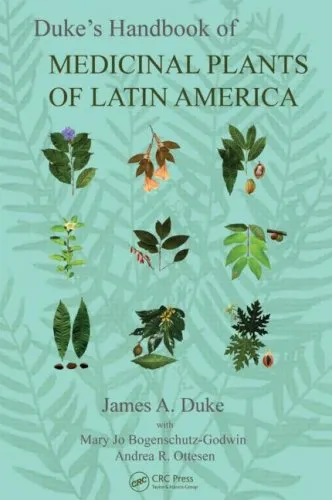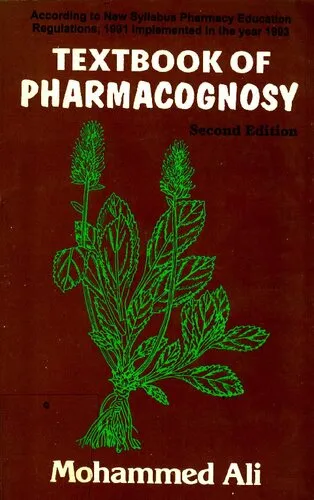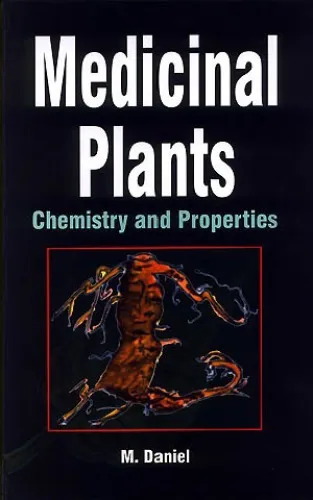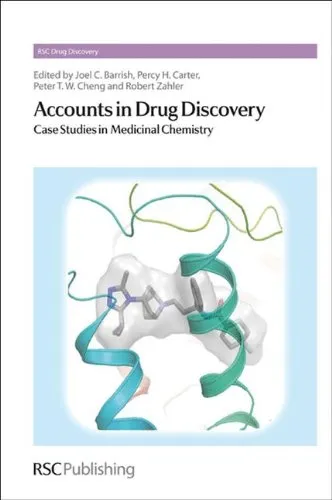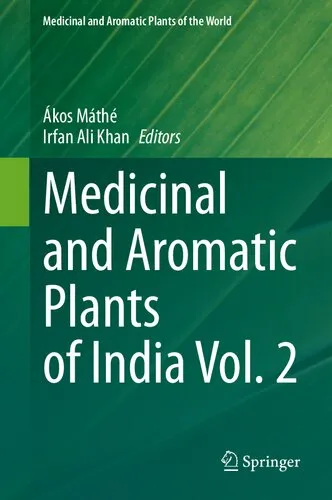Duke's Handbook of Medicinal Plants of Latin America
4.5
Reviews from our users

You Can Ask your questions from this book's AI after Login
Each download or ask from book AI costs 2 points. To earn more free points, please visit the Points Guide Page and complete some valuable actions.Related Refrences:
Introduction to Duke's Handbook of Medicinal Plants of Latin America
Written by renowned ethnobotanist James A. Duke, Duke's Handbook of Medicinal Plants of Latin America is an authoritative resource on the remarkable biodiversity of medicinal flora found throughout Latin America. This comprehensive volume details the rich pharmacopeia of natural remedies derived from plants, emphasizing their historical, cultural, and scientific significance. For those interested in herbal medicine, botany, or the intersection of traditional and modern medicine, this book is an indispensable guide to discovering the health-giving treasure troves that Mother Nature provides.
Detailed Summary of the Book
The book serves as both a scientific and cultural exploration of medicinal plants endemic to the Latin American region. It meticulously catalogs hundreds of species, describing their common names, phylogenetic classifications, traditional uses, chemical components, and potential health benefits. Dr. Duke provides in-depth ethnobotanical insight into how indigenous communities have utilized these plants for centuries to address various health conditions, from common ailments to chronic diseases.
Every entry in the handbook is augmented with data-driven, research-backed information, offering readers a bridge between traditional knowledge and modern scientific validation. Dr. Duke sheds light on the biochemical properties of these plants, often correlating their active ingredients with their therapeutic potential. Whether it's the anti-inflammatory properties of curcumin from turmeric or the antimicrobial effects of oregano, each plant profile equips readers with valuable scientific takeaways.
Importantly, the book is not just a technical manual. It highlights the ecological and cultural significance of preserving traditional knowledge in Latin America, a region rich in biodiversity but vulnerable to habitat loss and cultural erosion. Dr. Duke’s passion for plants and his commitment to sustainable use and conservation form the backbone of this work. He urges readers to understand, respect, and value indigenous perspectives on healthcare solutions.
Key Takeaways
- A deep dive into the medicinal properties of over 500 plants native to Latin America, showcasing their historical and present-day uses.
- Scientific exploration of plant chemistry, including active compounds and their therapeutic applications in modern medicine.
- Insights into the traditional knowledge of indigenous peoples and their symbiotic relationship with the local flora.
- Advocacy for the preservation of Latin America's invaluable biodiversity amidst global environmental challenges.
- Practical reference material for herbalists, pharmacologists, researchers, and natural medicine enthusiasts.
Famous Quotes from the Book
"Nature provides an unparalleled pharmacopeia; in every leaf and root lies a potential remedy, waiting to be rediscovered."
"Indigenous knowledge is not primitive; it is profound, eco-conscious, and a beacon of sustainability for modern medicine."
"Preserving Latin America’s medicinal plants is not just about conservation—it is about honoring a cultural legacy that has healed and nourished for centuries."
Why This Book Matters
In an era where pharmaceutical research is turning increasingly to natural products for new compounds, Duke's Handbook of Medicinal Plants of Latin America stands as a crucial source of knowledge. It underscores the vital role that nature plays in human health while celebrating the wisdom of Latin American traditions. This book bridges the knowledge gap between traditional healers and modern scientists, fostering collaboration and deeper understanding.
Additionally, the handbook serves as a compelling call to action. It emphasizes the importance of conserving biodiversity and traditional knowledge at a time when environmental degradation threatens both. By cataloging these plants and their uses, the book enshrines a wealth of knowledge that could otherwise be lost.
For researchers, it provides a foundational text for further exploration into natural medicines. For educators, it offers a culturally rich source of material for teaching ethnobotany and pharmacology. And for enthusiasts of alternative medicine, it inspires a renewed appreciation for the power of plants to heal.
The book’s relevance extends beyond its subject matter. It represents a broader philosophy—that of respecting nature, learning from indigenous wisdom, and fostering a future where traditional and modern systems of medicine coexist harmoniously. Dr. Duke’s legacy lives on through this work, championing the sustainable use of nature for the betterment of human health.
Free Direct Download
You Can Download this book after Login
Accessing books through legal platforms and public libraries not only supports the rights of authors and publishers but also contributes to the sustainability of reading culture. Before downloading, please take a moment to consider these options.
Find this book on other platforms:
WorldCat helps you find books in libraries worldwide.
See ratings, reviews, and discussions on Goodreads.
Find and buy rare or used books on AbeBooks.
1445
بازدید4.5
امتیاز0
نظر98%
رضایتReviews:
4.5
Based on 0 users review
Questions & Answers
Ask questions about this book or help others by answering
No questions yet. Be the first to ask!
